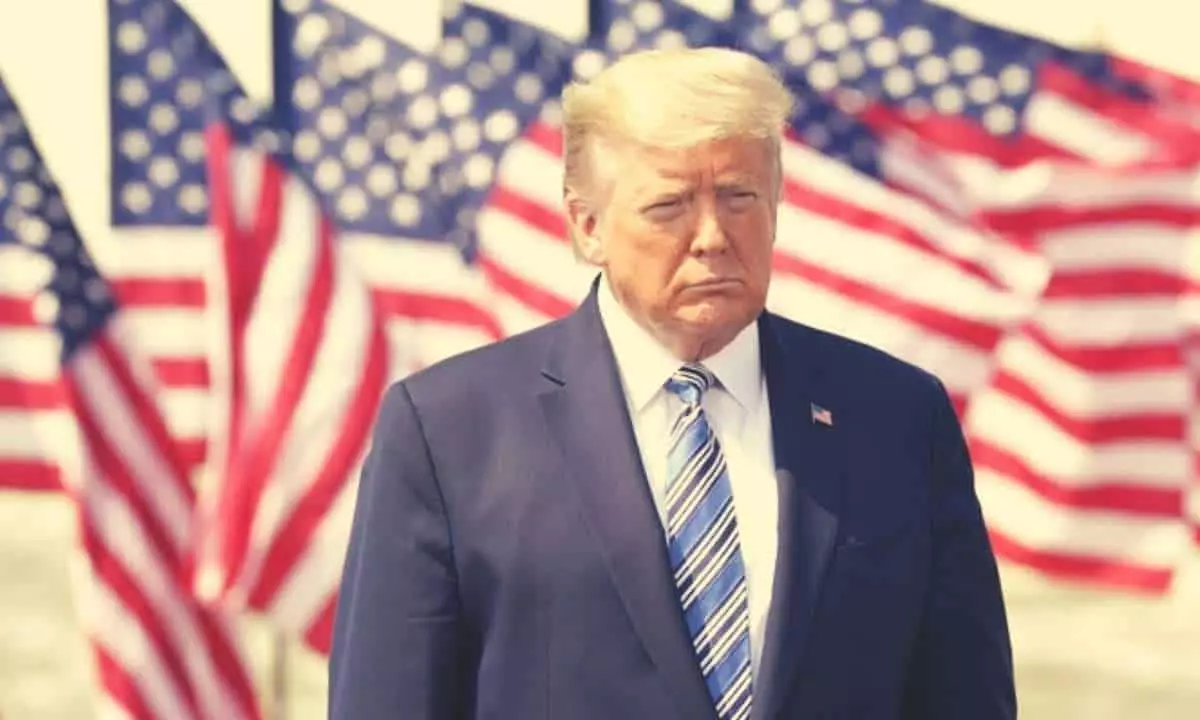The recent repeal of the IRS’s “DeFi Broker Rule” by President Donald Trump is not just a legislative adjustment; it’s a defining moment in the ongoing battle for financial privacy and innovation in America’s rapidly evolving cryptocurrency landscape. This ruling, enforced through the Congressional Review Act, prevents regulators from enforcing restrictive tax reporting requirements on decentralized finance (DeFi) platforms. As advocates for individual privacy, we should welcome this development with open arms.
The IRS rule sought to redefine what constitutes a “broker,” extending its grasp to developers of self-custodial wallets and DeFi applications. Such moves exemplify a concerning trend: governments overreaching their authority into private financial dealings, thereby eroding the very foundation upon which decentralized systems were built. The idea that participants in these ecosystems should be burdened with onerous reporting obligations is both impractical and unnecessary.
Encouraging American Innovation
Advocates like Representative Mike Carey (R-Ohio) aptly argue that this repeal clears a path for innovation. By removing bureaucratic red tape, developers can focus on what they do best: creating cutting-edge technologies that empower users rather than shackling them with excessive compliance burdens. The DeFi space hinges on the principle of autonomy, and any regulatory impediment threatens to stifle this nascent industry.
Moreover, it is essential to realize that pushing developers into more compliance-heavy jurisdictions risks America’s dominance in the crypto sphere. With many nations striving to claim a piece of the blockchain pie, creating an inhospitable environment under the guise of enhanced oversight could lead to an exodus of talent and ingenuity. Rather than seizing opportunities, we would find ourselves trailing behind more favorable environments abroad.
Balancing Taxation and Innovation
On the flip side, some lawmakers argue that stricter reporting requirements are essential to close the tax gap. Yet, the reality is that tax compliance in decentralized systems is seldom straightforward. DeFi platforms, unlike traditional financial institutions, do not collect personal user data, making compliance with IRS demands virtually impossible. The notion that wealthy crypto investors would gleefully exploit loopholes in the absence of stringent rules ignores the fundamental principle of personal responsibility that underpins capitalism.
Representative Carey’s comments highlighting the need for taxpayer privacy align well with center-right liberalism, which places individual freedoms above overarching governmental controls. Conservative governance should advocate for policies that enable innovation while simultaneously trusting citizens to fulfill their tax obligations without excessive interference.
A Shift in Regulatory Landscape
Trump’s administration has displayed a keen awareness of the importance of cultivating a favorable environment for tech innovation, especially in burgeoning fields like cryptocurrency. By establishing a federal crypto task force and actively engaging with industry stakeholders, the administration aims to support blockchain development rather than suffocate it with regulations.
This philosophical pivot away from the aggressive approach favored under previous administrations signals a broader movement toward pragmatic governance that encourages enterprise rather than stifling it. The Securities and Exchange Commission (SEC), previously seen as a formidable gatekeeper of the crypto space, has experienced a reevaluation of its strategies under new leadership—an encouraging sign for adaptation in an era characterized by rapid technological advancements.
The Broader Context of Government Intervention
Amid economic uncertainty, the role of government regulation has come under intense scrutiny. Many Americans are wary of bureaucratic intervention that complicates their financial lives, especially in areas as nuanced and innovative as cryptocurrency. The repeal of the DeFi Broker Rule should be viewed as a necessary corrective measure against a trend of excessive governmental oversight.
Historically, overregulation stifles innovation and entrepreneurial spirit, leading to stagnation rather than growth. The DeFi community’s reliance on trustless technologies and peer-to-peer transactions epitomizes the tenets of democracy—showing that financial sovereignty can coexist with fiscal responsibility without the shackles of invasive regulation.
In a world where the lines between innovation and regulation continue to blur, embracing policies that underscore personal freedom while enabling technological advancement is essential for ensuring that America maintains its position at the forefront of the crypto revolution.

